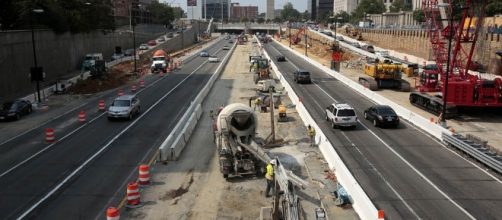One of the first proofs that elections have consequences came when, at the very moment that President Donald Trump took his hand from the Bible after being sworn in, a section called An America First Energy Plan appeared on the official White House website while the Obama-era section on climate change vanished. The plan is to open up federal lands to oil and gas drilling and sweep away regulations that impede energy production in the United States. The goal for the change in policy is two-fold.
First, America will become energy independent in the sense that it will not be dependent on sources of oil and gas in the Middle East.
Russia, or Venezuela, parts of the world that are prone to conflict and do not hold America’s interests at heart. The policy paper does not mention, but access to new sources of energy would make the United States an oil and has exporting country, thus lowering the price of fossil fuels on the world market. Thus countries like Russia and Iran would have less revenue to pay for mischief making.
Second, royalties from oil and gas extracted from federal lands would help pay for President Trump’s infrastructure program, estimated to cost at least $1 trillion over ten years. If the math turns out to be correct, the project can proceed without adding to the national debt.
The plan, while elegant in its simplicity, will not be unopposed.
The climate change community is already terrified at the prospect of more fossil fuels flowing. Trump, however, is not altogether hostile to renewable energy. The more energy that is produced domestically through wind and solar, the less that has to be imported from unfriendly countries.
The environmental movement will likely oppose some of the infrastructure spending as well. A percentage of the costs of building bridges and roads in the United States consists of battles with environmental groups. Likely Trump will be willing to see some laws passed and perhaps some executive orders signed that will inhibit the power of environmentalists to impede infrastructure construction in the courts.

